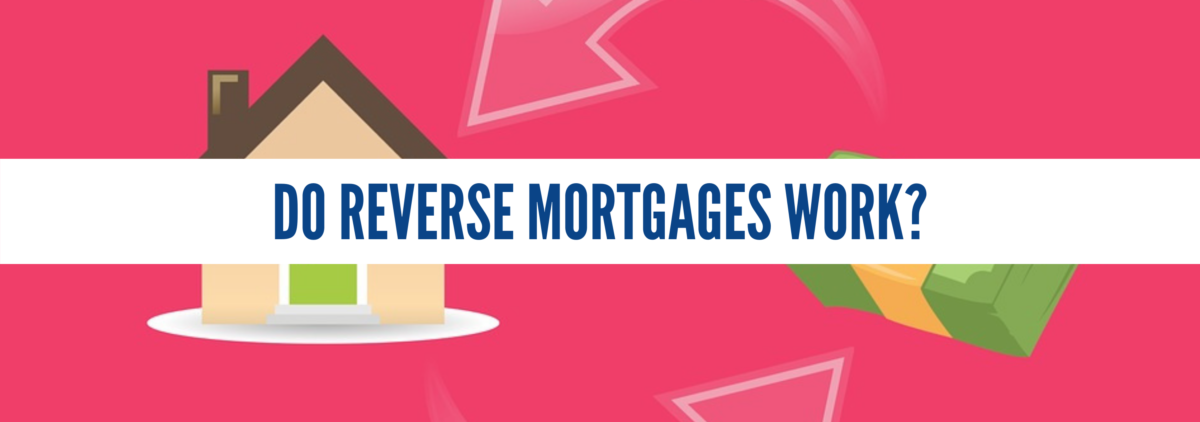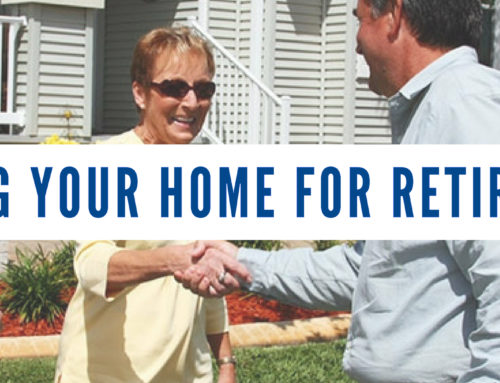If you ever watch daytime television, there’s no doubt you’ve seen advertising for reverse mortgages. The constant commercials have proven effective, as nearly 50,000 obtained reverse mortgages in 2018 alone. Reverse mortgages are a good option for some older Americans, but they are not beneficial for all. So, how exactly do reverse mortgages work and are they right for you? Continue reading below to learn the facts about reverse mortgages!
 Reasons to Consider A Reverse Mortgage
Reasons to Consider A Reverse Mortgage
There are several reasons why you may be considering a reverse mortgage, including:
- Disability
- Medical Bills
- Death/Illness in the Family
- Divorce
- Retirement
In many instances, homeowners consider a reverse mortgage simply to generate cash flow and make the most of the equity they’ve built up in their home in their later years. This extra money can be used in any way the homeowner would like, from food to debt and anything in between.
What Is A Reverse Mortgage?
So, what is a reverse mortgage? A reverse mortgage, also known as home equity conversion mortgages or an HECM, is a loan available to homeowners age 62 or older that have built up equity in their property. With a reverse mortgage, a homeowner borrows money against the value of their home. In most cases, homeowners will need at least 50% equity to obtain a reverse mortgage.
Homeowners can receive funds in a reverse mortgage in a few ways, including:
- Lump Sum
- Equal Monthly Payments/Annuity
- Term Payments
- Line of Credit
- Equal Monthly Payments PLUS A Line of Credit
- Term Payments PLUS A Line of Credit
The homeowner decides how they will receive funds in a reverse mortgage.
While the homeowner DOES NOT make payments on the loan, they will be charged interest on the funds they receive. The average interest rate in 2017 was 4.585%. Homeowners also have to stay current on insurance and property taxes. They are also are responsible for making any repairs.
A reverse mortgage loan is eventually repaid when the homeowner moves or passes away. The lender will sell the home after foreclosing on it. The lender will then use the money from the sale to repay itself. If there’s any money left over, it will be given to you if you’ve moved or passed on to your heirs if you’ve passed away.
Pros of A Reverse Mortgage
What are the pros of a reverse mortgage? If you are over 62 and want to stay in your home for the foreseeable future, a reverse mortgage can help you cover the cost of your daily expenses. Reverse mortgages are also for those who can afford the continual costs associated with them, and are not relying on the loan to solve long-term financial issues.
For those who are not planning on leaving the home to an heir after passing away, a reverse mortgage may be a good option.
Cons of A Reverse Mortgage
Reverse mortgages are not for everyone. In fact, many financial advisors say homeowners should only apply for a reverse mortgage loan if all other avenues to generate cash flow have failed.
Those who are in poor or failing health are especially advised to avoid reverse mortgages. As noted above, you are still required to make repairs and perform maintenance as necessary as long as you are living in the home. Those in declining physical condition may not be able to perform even the most routine tasks associated with home ownership.
Meanwhile, you are also advised to avoid a reverse mortgage if you plan on moving in the next 5 years. The costs and fees associated with a reverse mortgage are much higher than the traditional variety. In you plan on moving in the near future, it’s much more cost effective to simply sell the property.
Meanwhile, anyone under age 62 CANNOT BE ADDED to a reverse mortgage later. Even though they may be your spouse or loved one living in your property, they cannot be added to the mortgage once they reach age 62. That means they likely will have to vacate the property if you pass away.
Though reverse mortgages are regulated by the government, there’s no shortage of scams targeting seniors out there. In fact, financial advisors, predatory lenders, relatives and caregivers have been known to prey on seniors who may not be aware of what they are really getting themselves into. Contractors and vendors have also targeted seniors in order to receive money for unwanted or unnecessary home additions or repairs.
Do Reverse Mortgages Work For You?

In conclusion, reverse mortgages can be a useful tool for healthy seniors who plan on remaining in their current home for at least the next 5 years. They can provide breathing room and financial flexibility by utilizing the equity you’ve worked hard to build over the years.
However, a reverse mortgage is not a permanent financial savior. They can be loaded with exorbitant costs and fees, and make you susceptible to scammers and con-artists. They are also not ideal for those living with a spouse or loved one under the required age of 62, or those that are in declining health and/or unable to meet all the requirements that come with taking out a reverse mortgage loan.
Avoid A Reverse Mortgage With Highest Cash Offer!
If you’d rather not roll the dice on a reverse mortgage, you can sell your house FAST for CASH with Highest Cash Offer!
With Highest Cash Offer, there are NO interest rates to worry about and NO closing costs to pay. And what’s more, you can receive CASH for your house, townhouse, mobile home or condominium in as little as ONE WEEK!
If you’re ready to get a FREE, NO OBLIGATION offer on your home NOW, call (888) 387-5750 or submit your information with just a few clicks by using the offer button below!
If you want to avoid the potential pitfalls associated with a reverse mortgage and want to sell your house FAST, contact the professional home buyers right here at Highest Cash Offer today!




 Highest Cash Offer is a real estate solutions company. Our team of experts specialize in assisting homeowners with a wide variety of solutions to any real estate problem. Whether we buy your house for cash or not, our goal is to help you get the desired outcome you deserve.
Highest Cash Offer is a real estate solutions company. Our team of experts specialize in assisting homeowners with a wide variety of solutions to any real estate problem. Whether we buy your house for cash or not, our goal is to help you get the desired outcome you deserve.